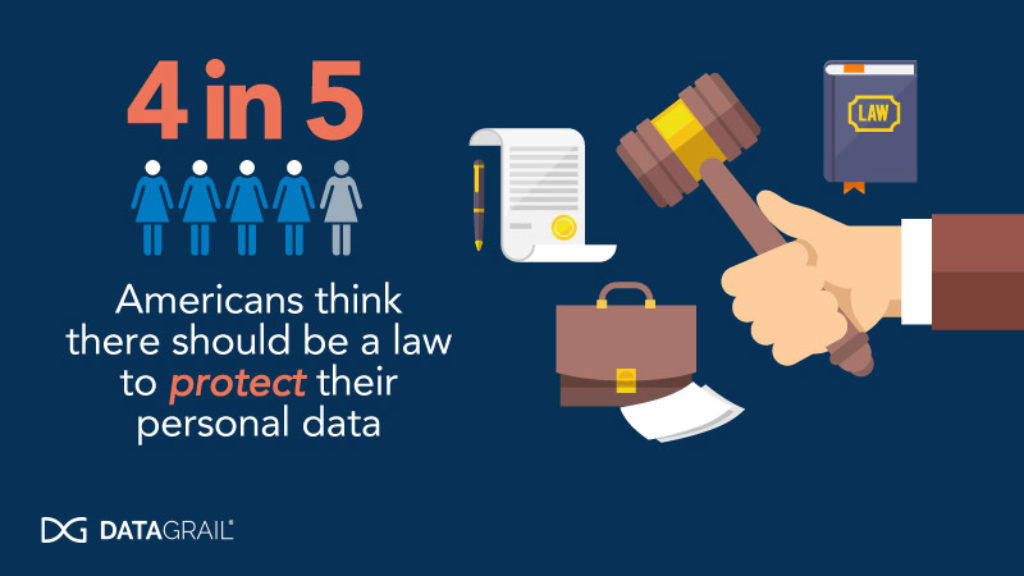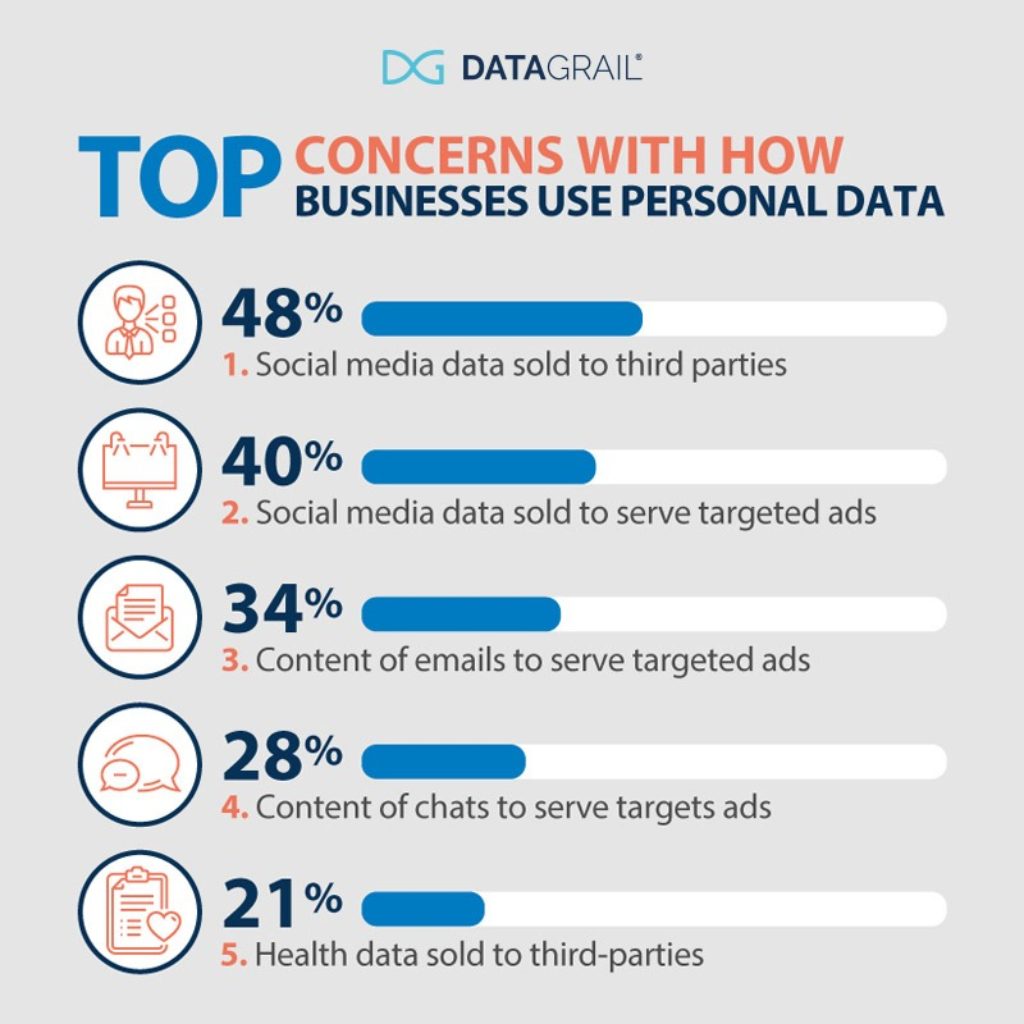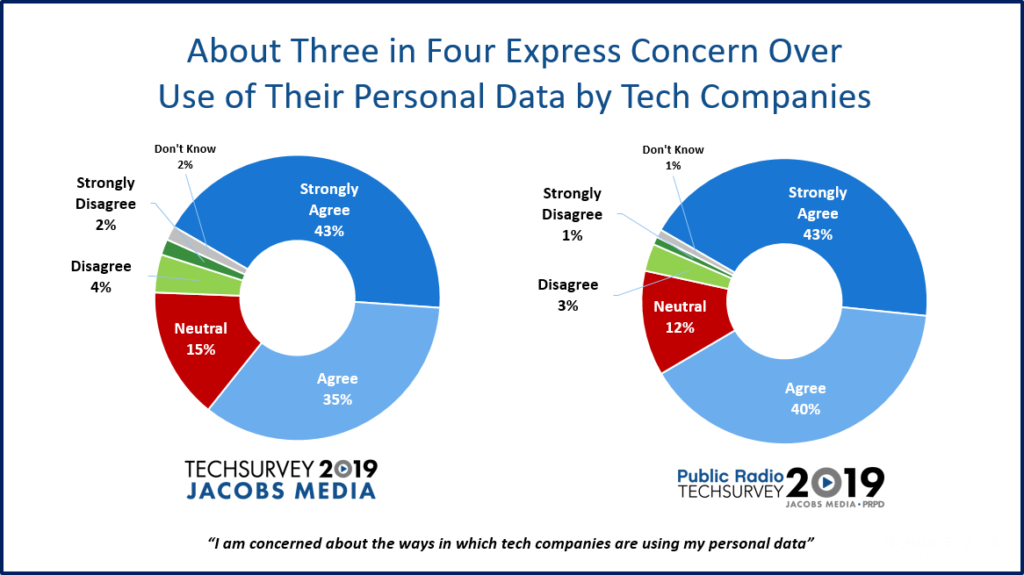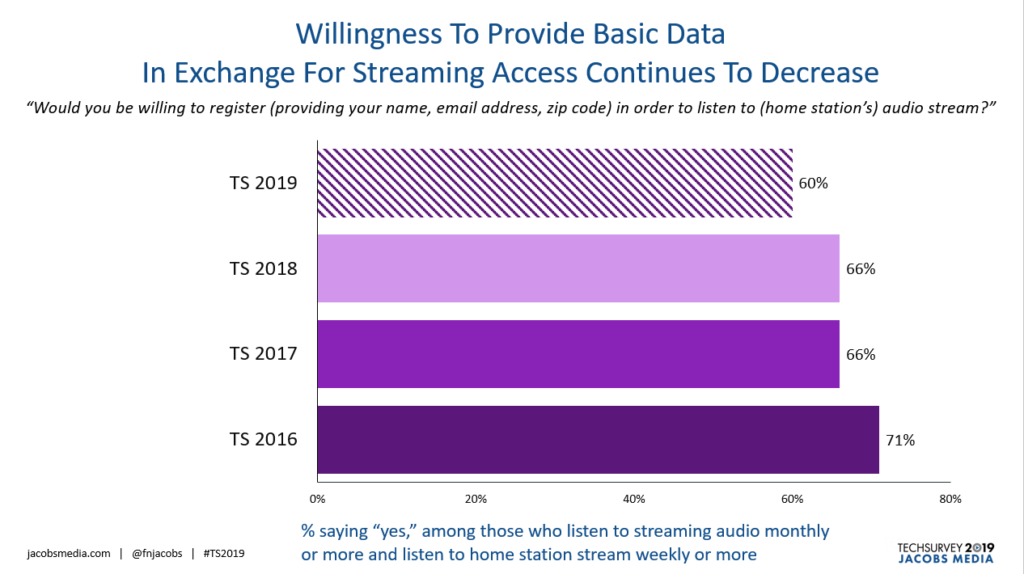
Did you know yesterday was Data Privacy Day?
I had no clue either. (Maybe it was information that wasn’t meant to be shared.)
According to the website, it’s “an international event that occurs every year on 28th January. The purpose of Data Privacy Day is to raise awareness and promote privacy and data protection best practices. It is currently observed in the United States, Canada, Israel and 47 European countries.”
The fact we actually have a day set aside to contemplate our data security – especially on the web – speaks volumes about how our online lives have changed. We used to get nasty little viruses that could be annoying and even harmful to our computers.
Today, that’s child’s play. A serious breach or hack can shut down entire corporations. We know broadcast radio companies have been attacked over the past few years. And most of us certainly think twice before we click – on just about anything. We are less and less likely to answer our phones – especially if we don’t know who’s calling. And on social media, many people have become much more selective about who they friend, who they follow, and what they click on.

This is nothing new. It was more than two decades ago that former Sun Microsystems CEO and co-founder Scott McNealy, was credited with making this prophetic statement:
“You have zero privacy. Get over it.”
And he was probably right. And we’re not getting much help from our elected representatives. Congressional hearings these past couple years have exposed many members of Congress for the Luddites they truly are, proving they are far behind rocket scientists like Zuckerberg, Bezos, and Musk.
At CES a few weeks back, Artificial Intelligence coursed through exhibit after exhibit, technology after technology. Of course, it is consumer data that powers this engine, allowing companies to predict our behavior using algorithms. But the fly in the ointment is privacy. Like a virus, it threatens to put a damper on data collection, ultimately throwing sand in the gears.
And it’s real. In celebration of Data Privacy Day, a company called DataGrail commissioned a research study of 2,000 Americans earlier this month to learn more about their data and privacy concerns.
They learned a great deal that echoes some of the squeamishness consumers are feeling about their data and how it’s being used. Specifically, the vast majority believe there should be legislation designed to safeguard their personal data:

On top of that, more than eight in ten concur about their expectations to have control over companies that have their information.
Perhaps their most telling finding revolved around the use of social media. Nearly half express concerns about sites like Facebook selling their information to third parties, while four in ten fret about how their “likes,” posts, and comments are used to sell targeted ads.

And there’s blowback waiting for companies perceived to violate the sanctity of personal data. DataGrail found more than three in four respondents would boycott a favorite retailer upon learning their personal data was sold.
So, I wondered how this national sample of Americans compares with what we’ve been seeing in our Techsurveys. That’s because we’ve been asking about privacy for the past couple of years.
And to get the full 360° view of the radio audience, we took a look at both our commercial and public radio surveys from this past year. The agree/disagree statement was worded identically in both studies:
“I am concerned about the ways in which tech companies are using my personal data.”
Now, if you’ve been as fortunate as I have – to spend many quality years working at high levels in both the commercial and public radio worlds – you know the Venn diagram connecting these two radio platforms doesn’t intersect much. Yes, they’re both doing radio broadcasting, but beyond that, they don’t often agree on a whole lot.
The audiences are very different, and perhaps moving even farther apart. They have different values, there are huge educational differences, and their expectations of music and spoken word content are miles apart.
But on the issue of data and the ways in which it is used by tech companies, they’re in lockstep with one another:

Data protection and privacy concerns, in general, may be the biggest “Yeah, but…” in the tech ecosphere in 2020. It is the underlying speed bump stopping consumers from bringing a smart speaker into their bedrooms and offices. (Even though the microphones on most smartphones are essentially gathering this same “data.”)
Ultimately, both Google and Amazon may have to address these concerns as their voice platforms proliferate in our cars, homes, and work spaces.
We may not be at the point where we’re reading Terms & Conditions statements line by line. But more consumers are waving a red flag at data, increasingly concerned about giving up their data to sources they may not entirely trust.
And as pressure is exerted on local and national governments to tighten the reins around our data, mistrust of corporations abounds.
Because radio stations frequently make use of email databasing, as well as social media, web and mobile metrics, it is essential broadcasters have their policies legally sorted out.
You would hope a local radio station would have an advantage over mega-corporations like Amazon or Facebook when it comes to data protection. But that may not be the case. Our Techsurveys indicate that only six in ten respondents green light providing minimal information in exchange for accessing their favorite station’s stream.

And keep in mind who these people are – primarily P1s, already members of station databases. But this quid pro quo question – streaming access in exchange for a little information – causes many of them to think twice about doing this very simple deal. Techsurvey 2020 comes out of the field early next month, and we’re anxiously waiting to see if this trend continues.
While Scott McNealy advised they “Get over it” back in 1999, consumers seem more activated and agitated nowadays. They’ve experienced data hacks, they’ve had their identities stolen, their credit cards compromised, and they’ve fallen victim to scammers. Every day is a constant barrage of bogus phones calls and phishing emails trying to separate them from their money and information. And it takes its toll.
Trust has never been a more important element for the electronics industry. And radio stations are no exception.
“In data we trust” has become a shaky proposition.
If AI is to actually improve our lives – and not just the companies we do business with – we all need to do a better job of protecting audience data.
It starts with trust.
You can read the entire DataGrail report here.
- Like A Pair Of Old Jeans - April 2, 2025
- What’s Fair Is Fair - April 1, 2025
- What’s On Your Bucket List? - March 31, 2025




There may be something here. “Radio – turn it on and we won’t collect, steal or sell your data. No one will know what you listened to except anyone who can hear your radio.”
For that reason, I’d abandon the idea of registering to listen to a stream. There aren’t enough streaming radio create enough scale to sell – so why not leverage and promote that.
I continue to believe that rather than force digital, radio should market itself as the “un-digital”. That might even appeal to some Gen Z kids.
Interesting angle, Bob. Thanks for sharing it.